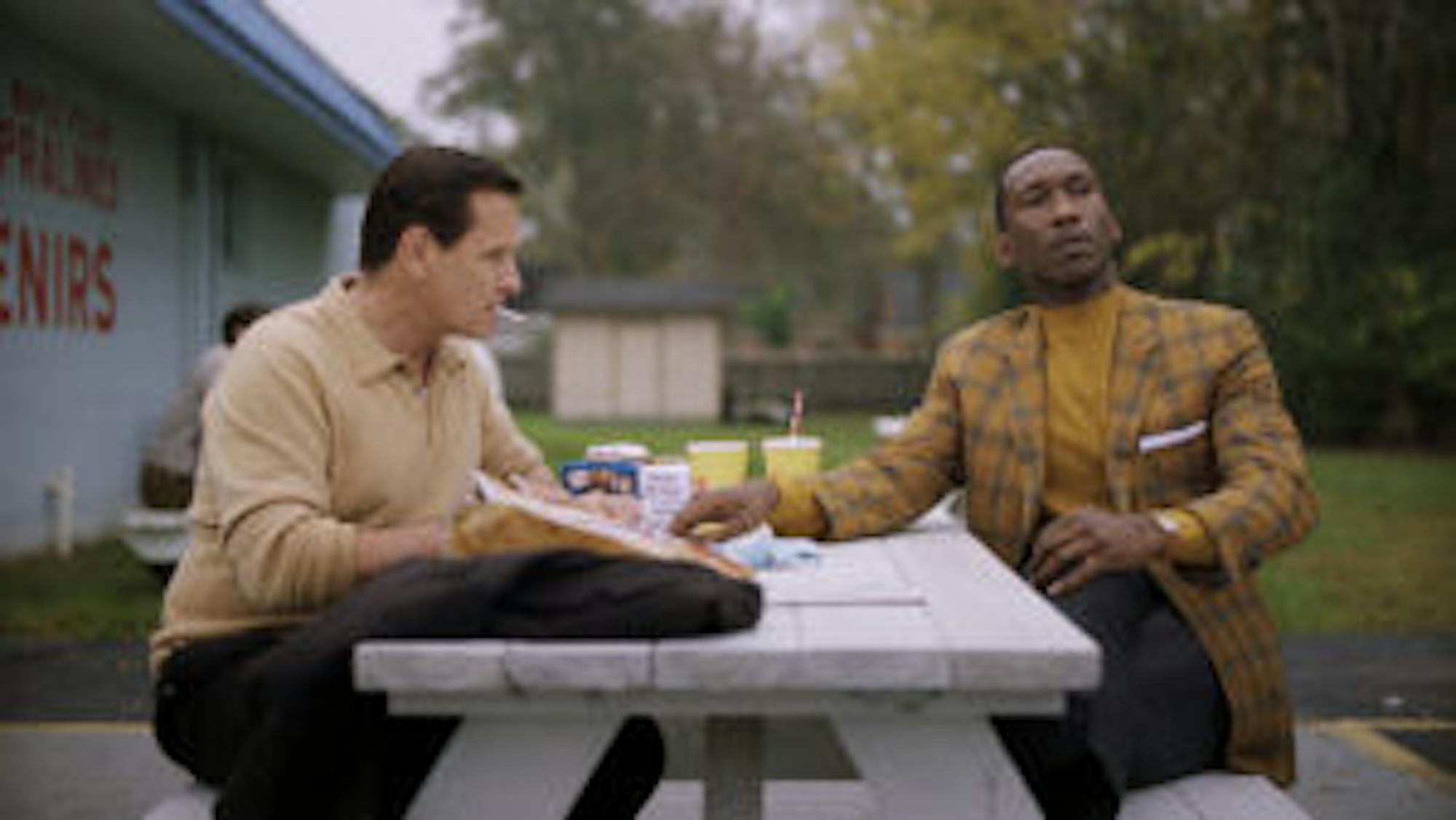All I truly care about is good storytelling and its ability to appeal to our humanity; it motivated my nosedive into student journalism. But most evidently, it is why I have and will always love movies. Therefore, the opportunity to attend the Toronto International Film Festival (TIFF) was an immense honor. Over four days as my sister and I galavanted about Scotiabank Theatre and TIFF Lightbox, I saw stunning Chinese neon-soap noirs and dramas tackling themes as universal as grief — and as specific as black queerness in the American South. This is the first of four day-by-day observations and reflections on these films.
TIFF DAY 1
“Long Day’s Journey Into Night” (B-)

Courtesy of Bai Linghai
There is a certain pretension that people often associate with slow-burning, meditative foreign films. Extensive run times, long pans and extended takes can feel aimless if unaccompanied by some clever plot payoff or revelatory theatrical performance. But Gan Bi’s neo soap-noir “Long Day’s Journey Into Night” confirms that these tools can be intermittently effective, especially when examining something as universal and uncompromising as a quest for love lost. The film’s visual allure and contemplativeness made it the perfect flick with which to kick off my TIFF experience.
“Long Day’s Journey” focuses on Luo Hongwu’s (Huang Jue) return to his hometown of Kaili, China, to find a woman he once loved. But his desire for reunion results in a non-sequential, long-distance run of a film with luminous karaoke bar scenes, intermittent bouts of violence and a nearly 50-minute long 3D section. While “Long Day’s Journey” is a visually beautiful film to watch, it contains an undeniably complicated plot. I found myself questioning if the children Luo interacted with in Kaili were mere silhouettes of his past self and if the bickering elderly couple was the same young couple shown earlier in the film. Further, the cartoonish representation of Luo’s love interest in the same emerald dress throughout their multiple encounters made me question her mortality — made me question if Luo was interacting with a town now full of ghosts.
By the time the credits rolled, I had more questions than answers about Luo and the people of Kaili. But in hindsight, I believe that was the point. While at times “Long Day’s Journey” felt as though it was being dense for the sake of being dense rather than being integritous to the complicated central story, the ultimate confusion I and other audience members left the theater with proved to be a purposeful response to the film’s contemplation of time. Although Luo’s initial journey is about finding a kindred spirit, the motifs used throughout the film — the readjustment or complete removal of clocks, the splintered shots of characters looking at their own reflections in mirrors as time passes — implicitly result in a meditation on the temporality of love and life itself. Watching the film, like living, is a clueless walkabout in and out of finite moments that are enveloped by inconceivable dreams.
“Green Book” (A-)

Courtesy of Universal Pictures
The world premiere screening of Peter Farrelly's “Green Book,” which won the 2018 TIFF People’s Choice Award, was packed with fellow film fans, industry executives and the main cast of the film — Mahershala Ali, Viggo Mortensen and Linda Cardellini — all of whom participated in a question and answer session with the audience after the screening. When discussing Ali’s acting chops, Mortensen said, “He is a better person than he is an actor and he is a h**l of an actor.” The aforementioned cast members and executive producer, Octavia Spencer, were as eloquent and generous with their time as one might have hoped.
“Green Book” is based on the true relationship between the acclaimed and classically trained black pianist, Don Shirley (Mahershala Ali), and the Italian-American Tony Lipp (Viggo Mortensen), the driver Shirley hires to help him safely navigate the South on a series of performances past the Mason-Dixon line in 1962. The film catalogs Tony and Shirley’s relationship as the concert tour progresses, as well as the letters Lipp and his wife Dolores (Linda Cardellini) write to one another. The title of the film is eponymous to the pocket guide black travelers used during the Jim Crow era to identify the hotels, restaurants and other establishments they were legally permitted to patronize.
Upon arriving to Toronto’s Elgin Theater, I was surprised and relieved to see so many enthusiastic faces. Prior to watching any film about race, especially at a local Georgia theater, I tend to brace myself for the combined frustration that typically pierces the room at the sight of lynchings or police brutality and bleeds into the rest of the day. Moreso, I am used to only seeing other black audience members grimacing alongside me. But for some reason, watching “Green Book” in that somewhat diverse, although still predominantly white, Torontonian theatre was easy. I struggled to decipher if it was because Canada’s comparatively inclusive culture and acknowledgment of historical crimes made for a more receptive audience, or if geographic degrees of separation contributed to a more attentive audience. But regardless, watching the surprisingly hilarious and dynamic friendship that blossoms between the working class, potty-mouthed Lipp — who more than once facetiously and later remorsefully claims to be “blacker than” Shirley — and Shirley, a well-traveled polyglot and closeted queer black man, is a stirring and important story about racial passing, class struggle and ignorance. “Green Book”’s Asian characters were also an appreciated touch, as midcentury America is often only told as a white-black story.
The sour bile that churns in my stomach when I see a black body assaulted on screen — as well as in person — still heaved. I grew frustrated on behalf of Shirley, a man struggling to perform black masculinity in a way that was palatable for his wealthy white audience members and black peers alike. But Ali gives a stirring, controlled performance about a savant wrestling with intersectional belonging that must not be missed. Similarly, Mortensen’s great migration era Italian-American ball buster schtick is so convincing that hearing his cool-mannered voice during the Q&A was particularly sobering. While the actor’s performances are individually great and collaboratively effective, “Green Book” truly shines because of its ability to pose questions typically left unexplored on the big screen. Questions like: What does it mean to be black or black enough? What power does one gain from being either physically or culturally white passing? What role do those who benefit from white supremacy — either through generational assimilation or proximity — play in dismantling racial oppression?




